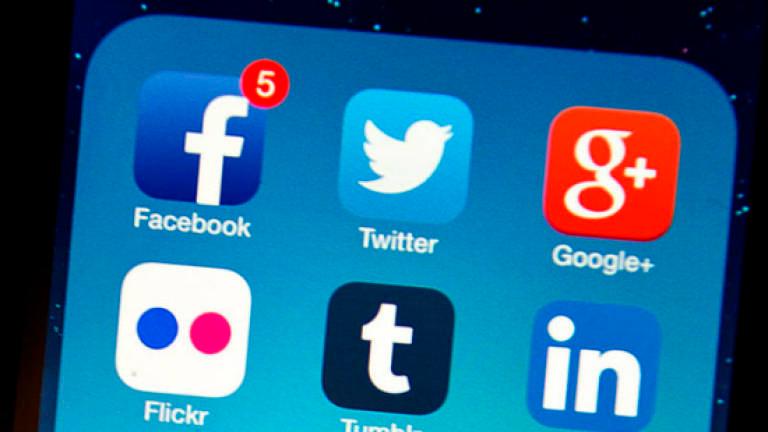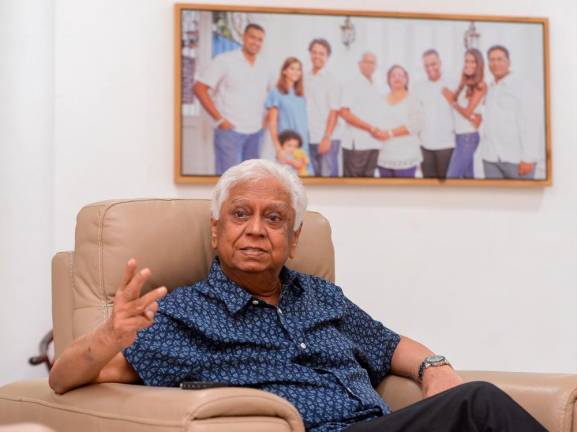THE Pew Research Centre recently surveyed 25,000 adults across 19 advanced economies in North America, Europe, the Middle East and the Asia-Pacific region on their views of the impact of social media on democracy in their country. A median of 57% of respondents viewed social media as having a positive impact on their democracy, with 35% considering it to have a negative impact. But there were substantial national differences: The US was an outlier, with just 34% of Americans thinking social media is good for democracy, while 64% saying it had a bad impact, and with Australians effectively split.
Does it work?
Pew started with a baseline evaluation of citizens’ satisfaction with democracy in the surveyed countries. A median of 51% reported that they were satisfied with how democracy was working,
but again with big cross-national differences. Sweden (79%) and Singapore (78%), which may be considered to have different operational models of democracy, came out as most satisfied. Australia also reported a healthy majority who were satisfied (57%), with Pew noting the recent change in the Federal government.
Mixed views were reported in the UK, Israel, Malaysia and South Korea, while countries such as France (56%) and the US (62%) had majorities expressing dissatisfaction with democracy in their country.
Pew also looked at citizens’ perceptions of their capacity to influence politics, and found that a majority in 18 of the 19 countries surveyed said their political system does not allow people like them to have an influence on politics. This included 71% of Australians who felt “powerless”, a similar level to the US (71%) and Japan (72%).
The only country where a majority of citizens thought they could influence politics was Sweden (65%), strikingly more positive than the next highest, Israel, where 48% of citizens believed they could influence politics.
Unsuprisingly, Pew found a strong correlation between citizens who felt they could not influence politics and those feeling dissatisfied with democracy in their country. Taking the “worst case”, more than six in 10 Americans were dissatisfied with their democracy and seven in 10 felt they could not influence politics.
Yet perhaps oddly, Australians on the whole were happy with their democracy, despite over seven in 10 considering they have little influence on politics.
Prons and cons
Australia, along with most of the world, appears to be caught in a Catch-22 situation with social media. Although the majority in every country agreed that the internet and social media have made people more informed, a larger number of them also believed that these platforms have made people more susceptible to manipulation with false information.
A majority surveyed said access to the internet and social media has led people in their country to be more informed on current domestic events. This number was highest in Sweden (85%), with Australia (76%) topping the UK (73%) and the US (64%).
Likewise, a significant percentage of respondents also felt that the internet and social media had made them
more knowledgeable about current international events – over 79% of Australians, 76% of British and 64% of Americans.
The results also found that the younger adults believed that social media increased their knowledge and awareness while the older adults tended to view social media as having little impact on their level of information.
The younger people in most of the countries said social media had increased their tolerance compared with the older folks.
In Australia, 55% of adults under 30 said social media had contributed to acceptance of people from different ethnic groups, religions and races, compared with 37% of those aged 50 and older. This positive impact of social media was wider than in many other countries (e.g. Germany and the Netherlands), but less in the US,
which suggests that the US is polarised on this too.
Conclusion
As more of our world integrates online, our dependence on the internet and social media for information will only continue to grow. This is especially relevant when it comes to the health of our democracy, given the growing influence of social media on our political views and exchanges with others about them. It is important that we trust these sources to tell us and others the truth, and provide civil spaces for open dialogue.
But while social media occupies a “global space”, the Pew survey shows a surprising difference in views between citizens in each of the countries about the impact of social media on their body politic. These differences – both positive and negative – are not explained according to geographic region, the degree of economic development, or even by Anglosphere vs non-Anglosphere countries.
At one end of the spectrum, the Swedes are the “happiest democracy campers” – They believe their democracy works well, and that by participating, they can shift politics, and that social media is a “democratising tool”, depite the caveats about misinformation risks.
At the other end of the spectrum, US citizens appear to have lost faith in their democracy, believing that it is beyond their ability as citizens to change things, and that it is social media that has poisoned the well.
Australians are at somewhat a strange place in the middle. They are almost as happy with their democracy as the Swedes, but are close to Americans in their scepticism of the benefits of participating in democracy and more fearful of social media’s negative impacts on them.
George Mathews, Principal Data Privacy and Security Compliance Analyst/Data Protection Officer,
NT Business Consulting and Training.









